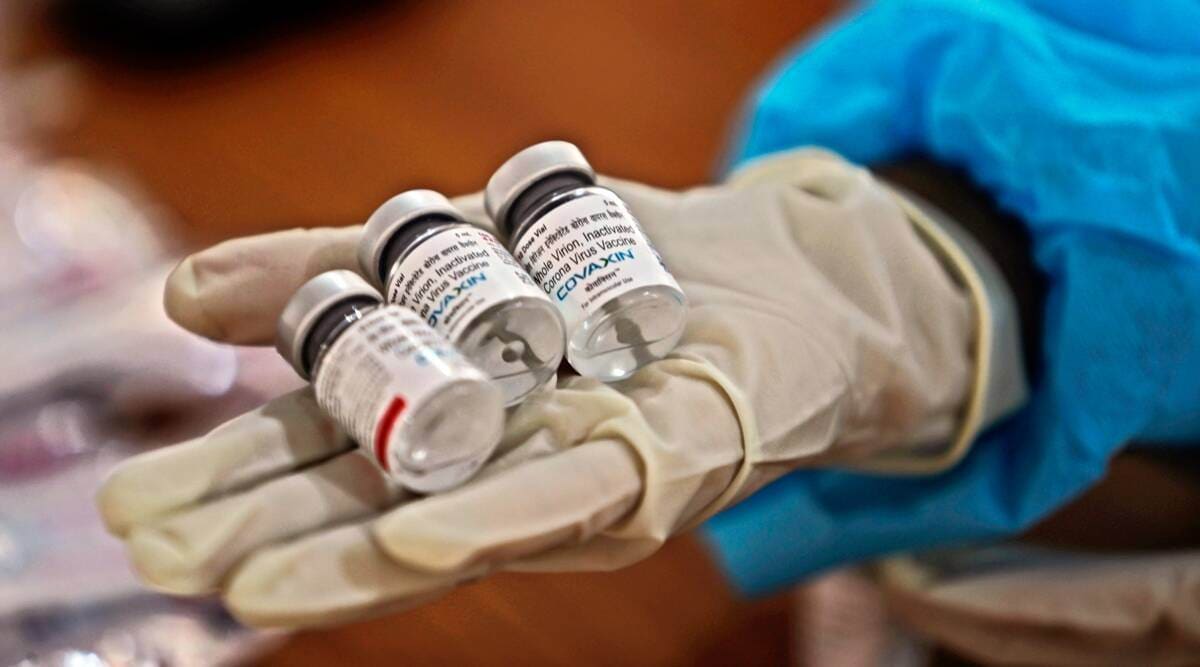 As part of the third phase of the Covid-19 vaccination strategy of the government, vaccine procurement was “liberalised” — allowing state governments to procure additional vaccine doses directly from manufacturers.
As part of the third phase of the Covid-19 vaccination strategy of the government, vaccine procurement was “liberalised” — allowing state governments to procure additional vaccine doses directly from manufacturers. The Punjab government recently announced that its efforts to secure vaccines from Moderna have been unsuccessful. The company turned down their application saying that their policy was to only deal with national governments, not individuals or states. The chief secretary of Punjab, Vini Mahajan said that such a response was expected, but that the state government “obviously wanted to make efforts”. Indeed, the inevitability of the situation is only worsened by its urgency — every day that passes by without a strong, focused, and coordinated national strategy to secure vaccine supplies for all is costly.
As part of the third phase of the Covid-19 vaccination strategy of the government, vaccine procurement was “liberalised” — allowing state governments to procure additional vaccine doses directly from manufacturers. Public choice theory suggests that decentralisation of government functions is useful when local governments, given their geographic proximity to citizens, reflect people’s preferences better than the central government. Expenditure responsibilities are assigned to different levels of government in line with such principles. When the local street lighting needs to be fixed, it makes more sense to call the local mayor’s office rather than the Prime Minister’s Office. Decentralisation, in this sense, can help us achieve resource allocation more efficiently.
However, in the present scenario, the delegation of responsibilities is unlikely to be helpful for a variety of reasons. First, when the constraint to vaccine availability is in the supply, rather than in the demand, uncoordinated state efforts to secure additional doses will, if anything, lead to inter-state competition to secure supplies. In many situations, competition among states encourages innovation and growth — the NITI Aayog distinguishes between cooperative and competitive fiscal federalism — but in this case, it will at best, result in a situation where you wished you lived in a “better” state. Benefits related to vaccinations have large spillover effects — the citizens of Delhi, even if they are fully vaccinated, will remain exposed to risks if a large population in Gurugram or Noida remains unvaccinated once the lockdown ends. At worst, it will lead to price competition, black marketing, smuggling, and worsening inequity in vaccine access.
What is the harm in states trying to secure additional doses, even if the strategy is unlikely to work? Massive inefficiencies will result from these efforts, as state governments, who have little experience in procuring vaccines, are forced to do what they can, without having the right resources and expertise. So far, India has had centralised procurement for immunisation programmes, resulting in greater bargaining power and lower administrative fixed costs for the government, and lower prices for citizens. State governments have no prior experience in vaccine procurement and procurement efforts will be duplicated as each state goes at it alone. State governments will make flailing efforts, knowing that there is little chance of them being successful.
Finally, a policy that decentralises vaccine procurement cannot be successful if states secure vaccines that have not yet been approved at the national level. As of now, the rules require local trials to have taken place before such emergency-use authorisation is granted. Since such regulation is still centralised at the national level, states, even if they do secure an agreement with Moderna or Pfizer or Johnson & Johnson, can do little without the involvement of the centre.
Our current experience has a parallel (albeit in reverse) in the experience of the European Union which has been much less successful in vaccinating its people compared to the US or the UK. To a large part, the slow start to the EU’s vaccine campaign can be attributed to flaws in its procurement of vaccines. The EU adopted a coordinated approach to secure vaccines so that Europeans living in Bulgaria were not left behind as France and Germany raced to procure vaccines. Vaccine procurement was centralised in Brussels rather than in national capitals. However, until then, the EU had little experience in managing large-scale procurement, particularly to do with healthcare, which was usually done by national or local governments. This led to a slow start, long bargaining periods, and ultimately, cost lives. The lesson from the EU’s experience is not that vaccine procurement is best done at the national or state level, but rather that procurement of emergency supplies during a crisis is best done by the level of government that has the ability and the expertise to get it done. In our case, this is the national government.
Ultimately though, decentralisation is not just about efficiency, it is also about accountability. In this case, at least, both criteria point towards the role of the central government as being primarily responsible for ensuring equitable and fair vaccine access during the pandemic. In India, the deflection of responsibility between the Centre and the states has long occurred when neither wants to take responsibility and be caught holding the hot potato when the music stops. Health is a state subject, but immunisation is a national one. Policing is a state subject, but tackling insurgency is a national one. Agriculture is a state subject, but trade in food items is a concurrent one. In the no man’s land between central, concurrent, and state lists of the Constitution, India’s chances of a coordinated vaccine response are fading away, with severe consequences for vaccine equity and access.
The writer is a PhD candidate at the University of Oxford.
- The Indian Express website has been rated GREEN for its credibility and trustworthiness by Newsguard, a global service that rates news sources for their journalistic standards.

